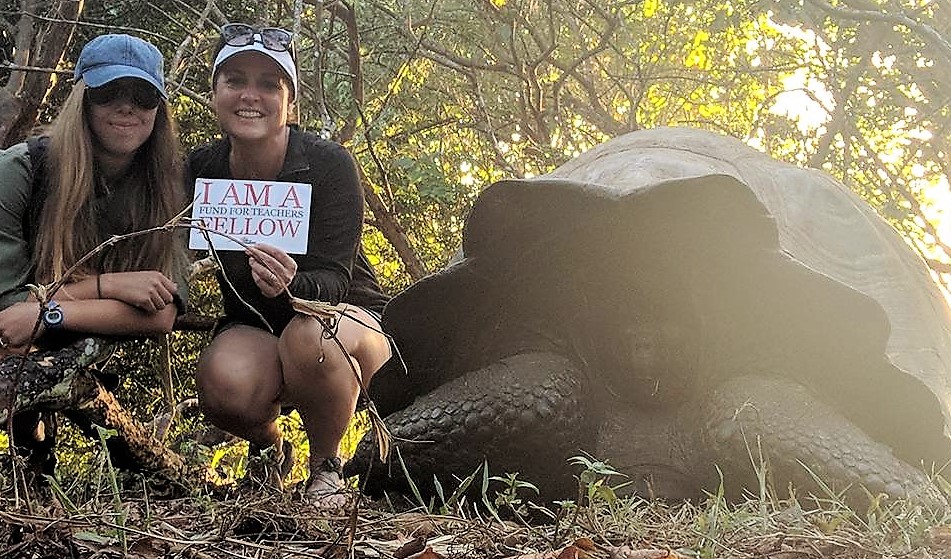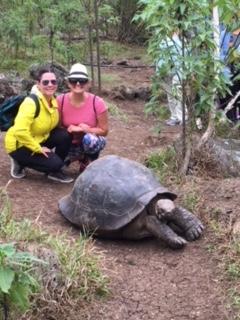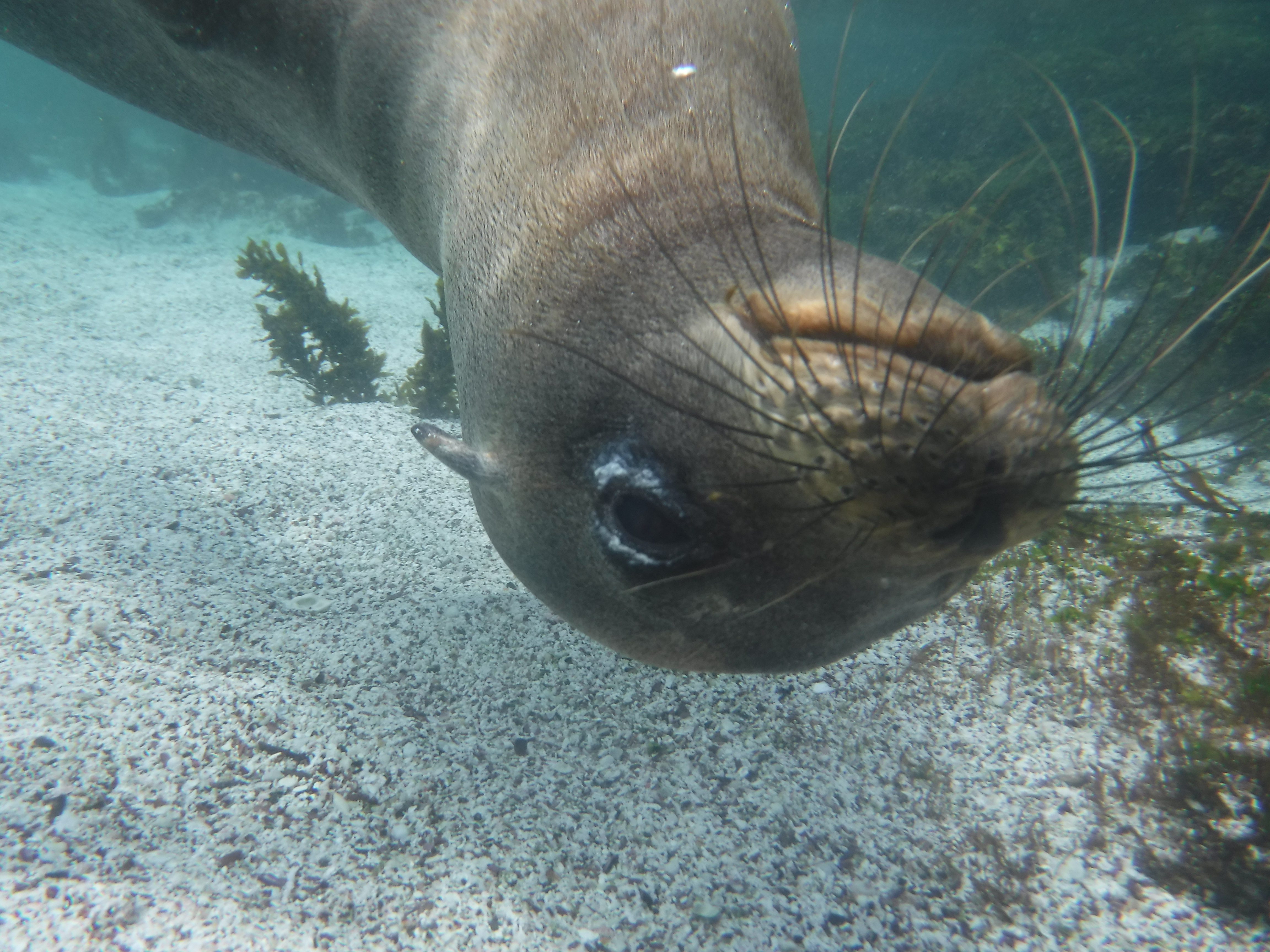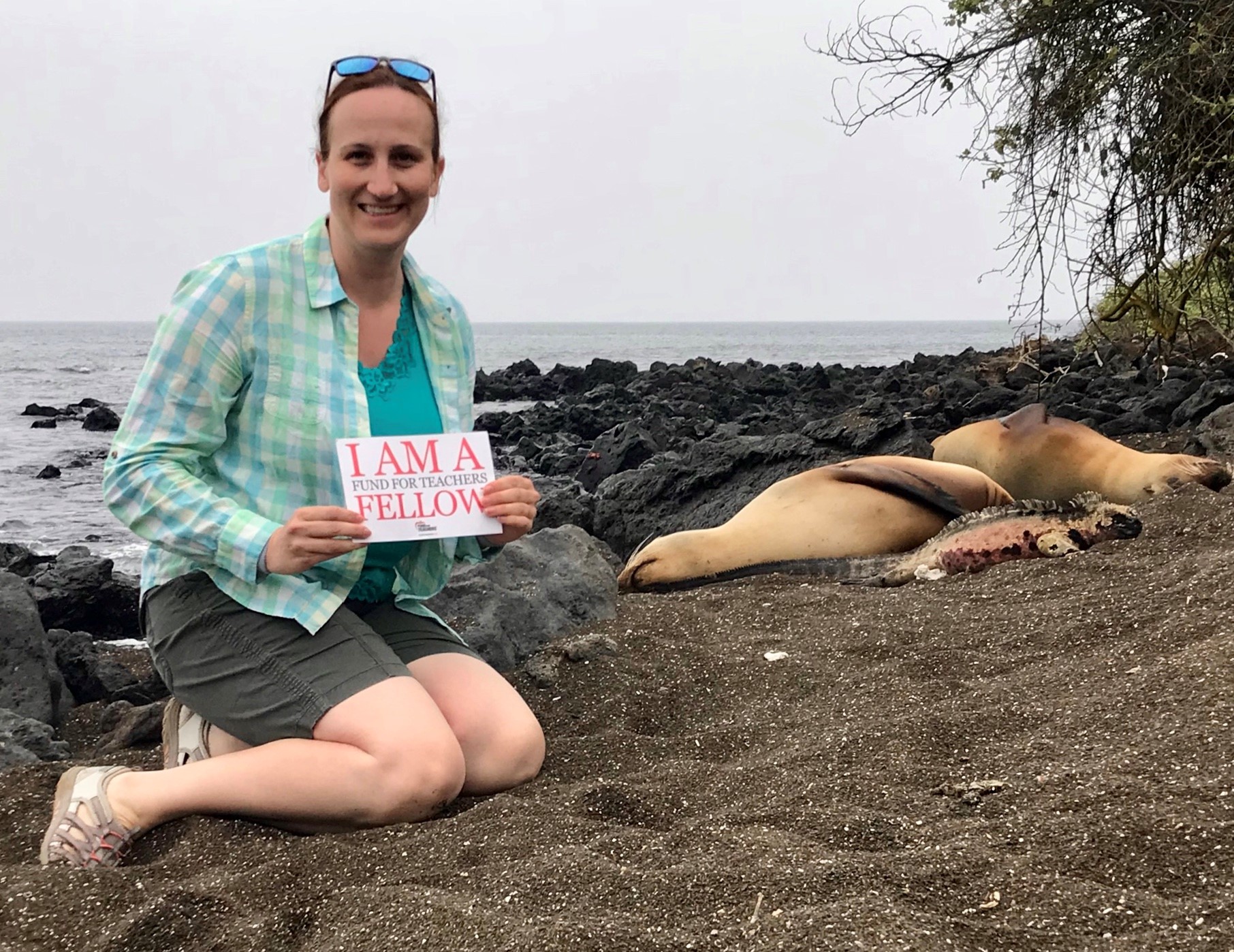Darwinian Destination

This week marks the 210th birthday of Charles Darwin who, according to Scientific American, proposed the most powerful idea in science. International Darwin Day (February 12) was established in 2005 to inspire people throughout the globe to reflect and act on the principles of intellectual bravery, perpetual curiosity, scientific thinking, and hunger for truth as embodied by the evolutionist.
More than 80 FFT Fellows have pursued knowledge and insights in the Galapagos Islands, where Darwin formed his thinking on evolution. Last summer, Mike Sustin (West Geauga High School – Chesterland, OH) investigated with professional scientists and interpretive naturalists from National Geographic the diverse ecosystems of the Galapagos Islands. From the Cotopaxi Volcano, roughly 15,000 ft above sea level, to the giant tortoises on Isla Fernandina, he drew parallels between current environment issues near his school for case studies in Environmental Science, Earth & Space Science and General Chemistry classes.
“I was able to explore cross-curricular connections that can be exploited within the high school building as well as vertically through K-12,” he said. “My experiences can help to enrich lessons about extinction and adaptation in third and fourth grade life sciences, support lessons in middle school earth science and geography classes, and provide collaborative focus topics for high school Spanish language, world government and economics and science class.”

Lisa and Megan by the sculpture commemorating Darwin’s arrival in the Galapagos.
“I experienced the intricacies between species, connections between history, culture, and life on the islands,” added 2018 Fellow BriAndhal Bailey (AISE Main Campus Middle School – Cairo, TX). “In addition to this overflow of knowledge, I’ve made connections with fellow teachers, stretching my understanding of educational philosophies. All that has been gained cannot be quantified, it’s such a gift, one I will share with my students in years to come.”
“In the past, when teaching about conservation, I always focused on a single species,” said Lisa Yahola, who with team member Megan Bloom (Tahlequah High School in Tahlequah, OK) conducted research comparing and contrasting landlocked and island biodiversity. “With the knowledge I gained, the students will now understand that conservation cannot just be focused on a single species. All the species that endangered or threatened species impact must be taken into account when creating a conservation plan.”
“How paramount the future is to the present,” said Darwin, “when one is surrounded by children.” Our Fellows personify this quote as they strive to engage and inform those who follow after us. Today we honor these 2018 Fellows with Darwin-focused fellowships, but you can review all of the grant recipients who learned in the Galapagos by visiting the project search on our website.
- Jill Kehoe & Katherine Martens (Chicago) joined a teacher-only expedition to the Galapagos Islands to become more aware of global environmental initiatives and inspire students’ personal passion projects aimed at protecting our planet.
- Image snapped by Laurie Matthews (Brooklyn) while snorkeling with scientists and sea lions at The Charles Darwin Institute.
- Tiffany Haley (US Air Force High School) joined a Galapagos Islands teacher expedition researching how unique animals & plants overcame environmental pressures and apply this to nonliving design problems and enrich both architecture and science courses.
Photo Above: The teaching team of Debra Brewer and Haley Lukes who explored environmental extremes involved in the development of civilizations and species in Peru, Ecuador, and the Galapagos Islands to improve students’ connections between cultural and biological evolution.
 Back to Blogs
Back to Blogs

